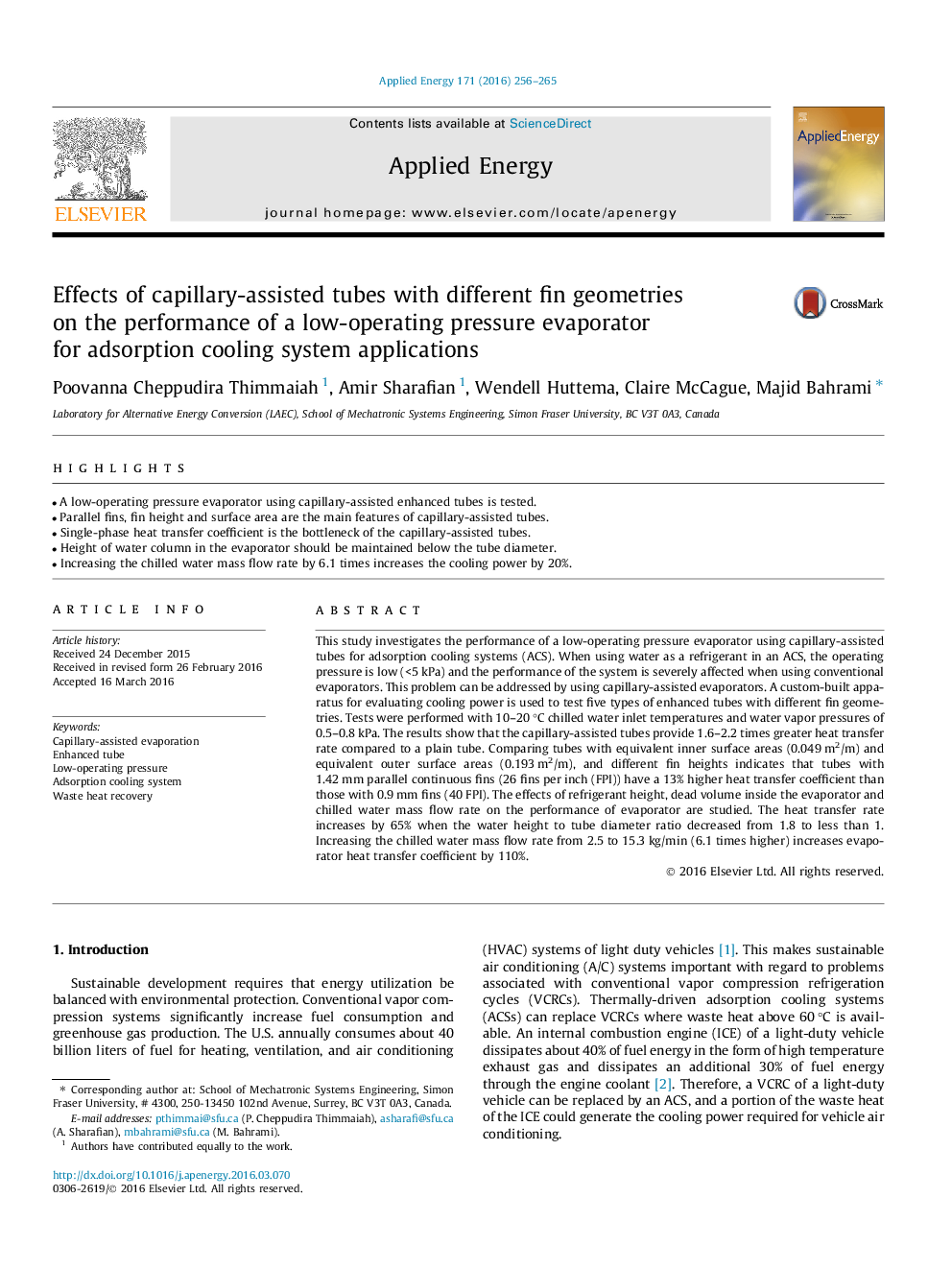| Article ID | Journal | Published Year | Pages | File Type |
|---|---|---|---|---|
| 6683290 | Applied Energy | 2016 | 10 Pages |
Abstract
This study investigates the performance of a low-operating pressure evaporator using capillary-assisted tubes for adsorption cooling systems (ACS). When using water as a refrigerant in an ACS, the operating pressure is low (<5 kPa) and the performance of the system is severely affected when using conventional evaporators. This problem can be addressed by using capillary-assisted evaporators. A custom-built apparatus for evaluating cooling power is used to test five types of enhanced tubes with different fin geometries. Tests were performed with 10-20 °C chilled water inlet temperatures and water vapor pressures of 0.5-0.8 kPa. The results show that the capillary-assisted tubes provide 1.6-2.2 times greater heat transfer rate compared to a plain tube. Comparing tubes with equivalent inner surface areas (0.049 m2/m) and equivalent outer surface areas (0.193 m2/m), and different fin heights indicates that tubes with 1.42 mm parallel continuous fins (26 fins per inch (FPI)) have a 13% higher heat transfer coefficient than those with 0.9 mm fins (40 FPI). The effects of refrigerant height, dead volume inside the evaporator and chilled water mass flow rate on the performance of evaporator are studied. The heat transfer rate increases by 65% when the water height to tube diameter ratio decreased from 1.8 to less than 1. Increasing the chilled water mass flow rate from 2.5 to 15.3 kg/min (6.1 times higher) increases evaporator heat transfer coefficient by 110%.
Related Topics
Physical Sciences and Engineering
Energy
Energy Engineering and Power Technology
Authors
Poovanna Cheppudira Thimmaiah, Amir Sharafian, Wendell Huttema, Claire McCague, Majid Bahrami,
